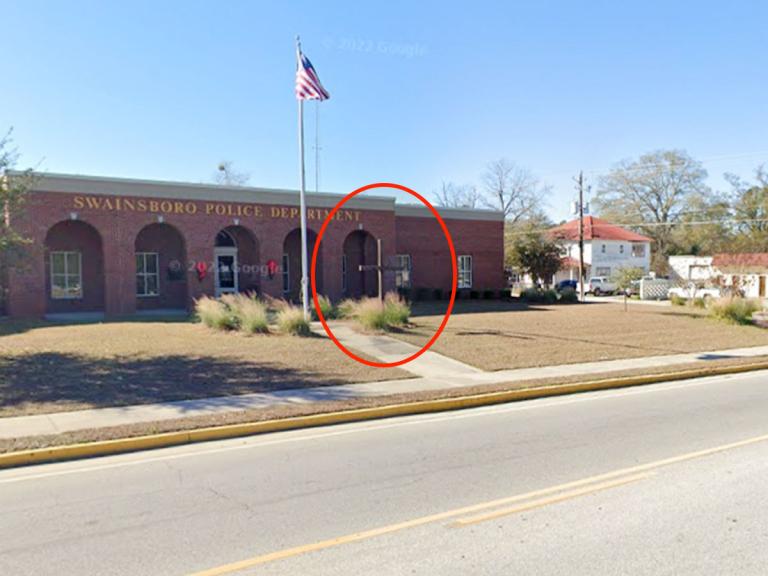
The Freedom from Religion Foundation (FFRF) has gone after the Swainsboro Police Department in Swainsboro, Georgia for its display of a cross on its property. The FFRF wrote a letter to Police Chief Randy Ellison demanding the cross’s removal, stating that a local citizen had reached out to them, stating the cross made the individual feel “unsafe.” Sharing their letter to the Department on Twitter, the FFRF wrote, “Our complainant feels that their safety may be compromised as a non-Christian because the police department has officially affiliated itself with Christianity. The Department must remove this unconstitutional religious display immediately.”
The letter went on to cite several Supreme Court decisions in support of the Establishment clause, which prohibits the government showing favoritism to any form of religion. The letter went on to further state that the cross was clearly meant as a religious symbol as it had only been recently constructed. The FFRF concluded the letter saying, “The cross unabashedly creates the perception of official government support for Christianity. It conveys the message to the 30% of Americans who are not religious that they are not ‘favored members of the political community.” Allegheny, 492 U.S. at 594. The cross has an exclusionary effect, making non-Christian and non-believing residents of Swainsboro political outsiders.” It demanded the cross be removed and taken to an appropriate private property.
This is not the first time there has been controversy over the display of religious symbols in public. Recently, a Jewish employee of a Florida school district filed a complaint against a Bible verse displayed on a parking lot spot at the district. Lawyers stated that it wasn’t a violation of the Establishment Clause as the verse itself was not compelling any form of faith from the students and no taxpayer dollars were used in displaying the verse. The Supreme Court ruled in two similar cases in 2005 in regard to the display of the Ten Commandments on Texas Capitol grounds as well as the display of the Ten Commandments inside two county courthouses. In the case of Van Orden v. Perry, the court ruled to permit a display of the Ten Commandments to remain on Texas Capitol grounds in a 5-4 split. The decision rested on the context of the display, which had been gifted to the Capitol by the Fraternal Order of the Eagles, which had donated several similar displays throughout the country to promote Cecil B. DeMille’s film, “The Ten Commandments.” The Court thus found that the display had a secular application to the display as a reminder of the contribution from the Fraternal Order.
In contrast, in another 5-4 split, the Court ruled that two local county courthouses in Kentucky could not display an image of the Ten Commandments on their walls in McCreary County v. ACLU of Kentucky, a case cited by the FFRF against the Swainsboro Department. In this case, it was determined that the images had a purely religious context and therefore were in violation of the Establishment Clause. At the time of this article, the Swainsboro Police Department has not responded to the FFRF, so it is unclear where the cross came from or the purpose for its display.


